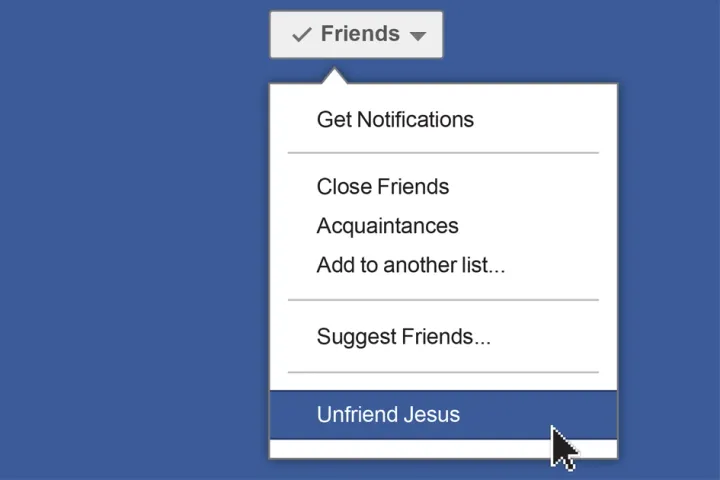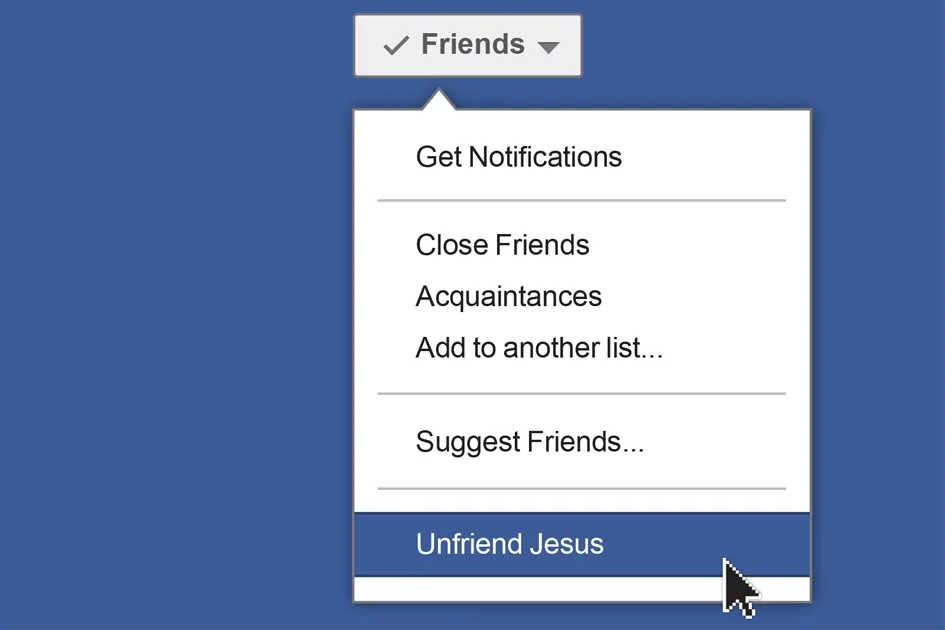For believers today, some instructions in the Old Testament simply don’t apply. For instance, we don’t concern ourselves with rules like cutting the edges of our beard (Lev. 19:27), boiling a young goat in its mother’s milk (Ex. 23:19), or mixing fabrics in a garment (Lev. 19:19). But “You shall have no other gods before Me”? That’ll always be sound advice for followers of Jesus (Ex. 20:3).
 Illustrations by Jeff Gregory
Illustrations by Jeff Gregory
“No other gods” was the first of the Ten Commandments etched on tablets, and it was followed by a closely related rule: “You shall not make for yourself an idol … You shall not worship them or serve them” (Ex. 20:4-5). We hear echoes of these principles throughout Scripture and, perhaps most importantly, in Jesus’ own words as He imparted the greatest commandment: “You shall love the Lord your God with all your heart, and with all your soul, and with all your mind” (Matt. 22:37-38).
Loving the Lord wholeheartedly can at times feel daunting—impossible, even—but it doesn’t have to. In this guide, we want to help you gently and thoughtfully remove whatever obstacles are in the way of loving God with all your heart, mind, and soul. Idolatry is a struggle that comes with being human, and that means we can address it routinely, like brushing our teeth. We don’t have to wait for a revelation or conviction that results in a 180-degree life change; dismantling idols can also look like daily course correction or a weekly recalibration of the heart.
With that approach in mind, we hope the guidance and exercises in this article help clear your path to God. The goal is not to upend your life but to adjust whatever preoccupies your heart, honor God’s gifts as He intended, and help you discover an unobstructed view of Him in the process.
The Shape of an Idol
At its most basic level, an idol is any object, person, idea, or goal that takes our gaze off God. Unlike the Israelites’ idols, ours won’t be obvious. They won’t necessarily be made of gold or raised up on a pedestal for the world to see. Addressing modern-day idols requires a little more digging and introspection.
An idol is something we go to in place of or before we go to God. Something we hope will meet our needs. Thinking of idols in this way, it’s easier to see how even beautiful and good things can hold a place of priority that, for a Christian, should belong only to the Lord. Sometimes we even mistakenly put the gifts God has given us, good and virtuous things, in His place.
Knowing that idols can take many shapes—visible or invisible, garish or gorgeous, worshipped with our physical body or with an improper posture of our heart—how are we to identify them?
Begin with a simple prayer, like this one: Holy Spirit, if there’s anything that has taken up space in my life that belongs to God, please show me. May Your conviction be clear and Your presence known. In Jesus’ name, amen.
Then consider the following questions:
How am I spending my time?
How am I spending my money?
What keeps me up at night?
Does my heart sting a little when someone else shares an achievement or hits a milestone?
In what circumstances do I feel the need to impress someone?
Questions like these help us consider our motivations. For example, consistently giving extra time to vacuuming and polishing the special car in the garage may mean it holds an improper place of importance in someone’s heart. Similarly, if a couple’s finances are tied up in amassing great wealth as a status symbol, then maybe money has become more than a useful tool. Or, what about the parent who can’t settle down to sleep while worrying over the children’s future? Perhaps he or she is not placing their well-being in the hands of God. And someone else, who’s easily discouraged when a friend shares success on social media, may be forgetting his or her own God-given value and talents.
Once you identify the idol, try going one step further and follow it to the source. Why does this particular thing feel so important to you? Consider the following questions:
Do I feel more secure when I am/have/earn __________? Describe the security it provides.
Does the idol provide validation of some kind? Does it prove that I am a hard worker, devoted parent, diligent employee or student?
Am I unsettled in my current situation? If so, why?
While discussing the why doesn’t change the fact that we have misplaced our priorities, it does remind us of our brokenness and need for God’s grace. The truth is, our motivations for creating idols—security, worth, love, and importance—are basic human needs. There’s no reason to be ashamed of the fact that we long for these things; we just need to take them to God.
Start Talking
Often, simply speaking about an idol challenges its power in our life. So if you want to put an idol in its proper place, start by talking to your heavenly Father. And remember that regardless of what you’re struggling with, His love for you has not changed.
Sometimes the hardest part is getting started, so here’s a prayer you can lean on. You can follow it word for word or let it be a foundation for your own thoughts and conversation with the Lord:
God, I’m noticing lately that ______ has a greater influence in my life than it should. It wasn’t always this way—I’m not sure when things changed. But at some point, ______ made me feel secure. I’ve been trusting in it, rather than You. Forgive me, Lord. Honestly, I’m not sure where to go from here, but I pray You will help me find balance and honor You. In Jesus’ name, amen.
It's possible you feel so attached to the idol that you’re not ready to pray a prayer like this one. If so, that’s okay—you can try this one instead:
God, I think ______ might have become an idol in my life. I’m scared to admit that because I’m not ready to let it go. Can you help me get ready? Can you prepare my heart to confess? I’m just not there yet. Be with me, Father, and give me courage. In Jesus’ name, amen.
Saying these things to God can feel daunting, but none of this is new information to Him. He already knows what you’re struggling with and how you’re feeling. On top of that, our Father never leaves us alone, even while we’re in the process of confession and repentance. In Psalm 139:9-12, David reflects, “If I dwell in the remotest part of the sea, even there Your hand will lead me … Even the darkness is not dark to You, and the night is as bright as the day.” God is with us when we make mistakes, and when we’re ready to repent, He’s right there, strengthening and equipping us for the journey.
If you’d like more guidance on confessing to God, see the article “How to Confess Sin Without Beating Yourself Up.”
Adjust the Scales
In Matthew 6:20-21, Jesus urges His followers to “store up … treasures in heaven, where neither moth nor rust destroys, and where thieves do not break in or steal; for where your treasure is, there your heart will be also.” But instead of just telling us to knock it off, Jesus offers an alternative pursuit: to seek His kingdom and His righteousness. What’s more, He promises that the things we’re worried about—what we’ll eat and wear and what will happen to us tomorrow—will be taken care of as well (Matt. 6:25-33). In other words, seek Him and everything else will fall into place.

We don’t necessarily need to get rid of the car we love, quit our job, or become laissez-faire with the kids. Often, simply adjusting the role of these treasures in our heart and mind is the best solution. That’s not to say there aren’t some idols we need to cut completely from our life. Some must be removed because, for one reason or another, moderation isn’t possible. But oftentimes it’s not the object itself but the amount of space it takes up in our mind and spirit that needs to be adjusted. And that tends to happen with gifts God has given us, the ones we have come to love more than Him. Knowing the difference comes through prayer and listening to the Holy Spirit within us.
If God has given us good things in our life to enjoy—and the Bible tells us that is the case (James 1:17)—how do we balance the enjoyment of those gifts with the higher calling of loving and pursuing God? Here are a few ideas to help you keep idols in their rightful place:
Set boundaries. For example, if worrying about finances keeps you up at night, you may choose to delete the stock market app from your phone. Or if you’re preoccupied with maintaining your image, you might stay off social media for a week.
Give thanks. When we thank God for the things we have, we acknowledge He is the one true source and we are simply stewards of His generosity.
Create distance. When you find yourself contemplating, pursuing, engaging with, or otherwise “worshipping” a particular idol …
Picture yourself putting it in a closet or another room, where you can’t see it, and take a couple of deep breaths. Use this as a mental reset whenever it comes up again.
Make fists with both hands and then open them. With palms up, repeat this phrase based on Job 1:21: The Lord gives and the Lord takes away. Say it as many times as you need.
When we remember that God is the ultimate source, we can work toward fully enjoying His gifts without fear of idolizing them.
A New Direction
Our idols might not be as obvious as the Israelites’, so our dismantling of them won’t be as evident either. Some days we might even wish our idols were physical so we could destroy them once and for all. Instead, we’re left perpetually checking our heart, having honest conversations, and changing direction.
Because we are human, looking for security, worth, and love in something other than God will be tempting all our days. And while idols will never properly satisfy us, the expectation that our life in Jesus will be idol-free is unrealistic. Rather than beat ourselves up every time we notice we’re worshipping something, we can confront it, repent, and reorient our heart once again to Jesus. It is this process of gentle and steady course correction that keeps us united with Him.
No matter the object, idea, or person, all idol worship is based on longing. We’re longing for true peace, true security, true love—and ultimately the only Person who can provide these things is the Giver of life Himself. When you notice an idol, God doesn’t want you to be weighed down by shame. He wants to connect with you and call you to a higher, more everlasting way. Holding treasured things with loose hands gives you an opportunity to taste and see that the Lord is good. And He promises you’ll find in Him a love that is sweeter, a relationship more satisfying, and friendship more loyal and kind than any other.





